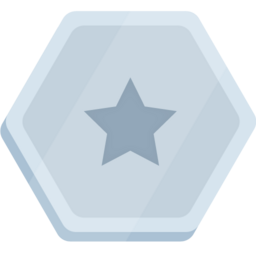Zi-Onn Hoe
Member since 2023
Silver League
10660 points
Member since 2023

This course gives you a synopsis of the encoder-decoder architecture, which is a powerful and prevalent machine learning architecture for sequence-to-sequence tasks such as machine translation, text summarization, and question answering. You learn about the main components of the encoder-decoder architecture and how to train and serve these models. In the corresponding lab walkthrough, you’ll code in TensorFlow a simple implementation of the encoder-decoder architecture for poetry generation from the beginning.
This course will introduce you to the attention mechanism, a powerful technique that allows neural networks to focus on specific parts of an input sequence. You will learn how attention works, and how it can be used to improve the performance of a variety of machine learning tasks, including machine translation, text summarization, and question answering. This course is estimated to take approximately 45 minutes to complete.
This course introduces diffusion models, a family of machine learning models that recently showed promise in the image generation space. Diffusion models draw inspiration from physics, specifically thermodynamics. Within the last few years, diffusion models became popular in both research and industry. Diffusion models underpin many state-of-the-art image generation models and tools on Google Cloud. This course introduces you to the theory behind diffusion models and how to train and deploy them on Vertex AI.
In this beginner-level course, you will learn about the Data Analytics workflow on Google Cloud and the tools you can use to explore, analyze, and visualize data and share your findings with stakeholders. Using a case study along with hands-on labs, lectures, and quizzes/demos, the course will demonstrate how to go from raw datasets to clean data to impactful visualizations and dashboards. Whether you already work with data and want to learn how to be successful on Google Cloud, or you’re looking to progress in your career, this course will help you get started. Almost anyone who performs or uses data analysis in their work can benefit from this course.
As the use of enterprise Artificial Intelligence and Machine Learning continues to grow, so too does the importance of building it responsibly. A challenge for many is that talking about responsible AI can be easier than putting it into practice. If you’re interested in learning how to operationalize responsible AI in your organization, this course is for you. In this course, you will learn how Google Cloud does this today, together with best practices and lessons learned, to serve as a framework for you to build your own responsible AI approach.
Complete the introductory Prompt Design in Vertex AI skill badge to demonstrate skills in the following: prompt engineering, image analysis, and multimodal generative techniques, within Vertex AI. Discover how to craft effective prompts, guide generative AI output, and apply Gemini models to real-world marketing scenarios. A skill badge is an exclusive digital badge issued by Google Cloud in recognition of your proficiency with Google Cloud products and services and tests your ability to apply your knowledge in an interactive hands-on environment. Complete this skill badge course and the final assessment challenge lab to receive a skill badge that you can share with your network.
This is an introductory-level microlearning course aimed at explaining what responsible AI is, why it's important, and how Google implements responsible AI in their products. It also introduces Google's 7 AI principles.
This is an introductory level micro-learning course that explores what large language models (LLM) are, the use cases where they can be utilized, and how you can use prompt tuning to enhance LLM performance. It also covers Google tools to help you develop your own Gen AI apps.
This is an introductory level microlearning course aimed at explaining what Generative AI is, how it is used, and how it differs from traditional machine learning methods. It also covers Google Tools to help you develop your own Gen AI apps.
The Google Cloud Computing Foundations courses are for individuals with little to no background or experience in cloud computing. They provide an overview of concepts central to cloud basics, big data, and machine learning, and where and how Google Cloud fits in. By the end of the series of courses, learners will be able to articulate these concepts and demonstrate some hands-on skills. The courses should be completed in the following order: 1. Google Cloud Computing Foundations: Cloud Computing Fundamentals 2. Google Cloud Computing Foundations: Infrastructure in Google Cloud 3. Google Cloud Computing Foundations: Networking and Security in Google Cloud 4. Google Cloud Computing Foundations: Data, ML, and AI in Google Cloud
The Google Cloud Computing Foundations courses are for individuals with little to no background or experience in cloud computing. They provide an overview of concepts central to cloud basics, big data, and machine learning, and where and how Google Cloud fits in. By the end of the series of courses, learners will be able to articulate these concepts and demonstrate some hands-on skills. The courses should be completed in the following order: 1. Google Cloud Computing Foundations: Cloud Computing Fundamentals 2. Google Cloud Computing Foundations: Infrastructure in Google Cloud 3. Google Cloud Computing Foundations: Networking and Security in Google Cloud 4. Google Cloud Computing Foundations: Data, ML, and AI in Google Cloud This first course provides an overview of cloud computing, ways to use Google Cloud, and different compute options.